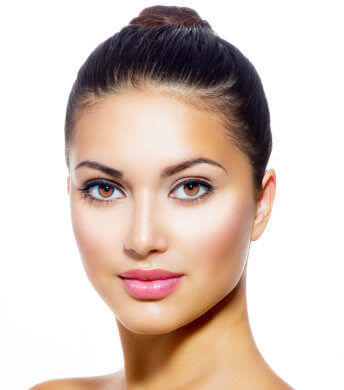Am I Going to Bruise During my Dermal Filler Injection?
This is a very common question asked by our patients, and unfortunately the answer is that you can never be 100% certain that you will not bruise. It’s understandable that patients can be anxious about this because bruising can cause social embarrassment and inconvenience.
Dr. Leong takes several critical steps to reduce that likelihood of bruising after cosmetic injectable treatments:
• Most importantly, Dr. Leong only injects dermal fillers with blunt-tipped microcannulas. There is broad evidence that this technique reduces bruising and improves the safety of injections.
• Dr. Leong uses a specialized technique that involves injecting a tiny droplet of local anesthetic to the site where the microcannula will be used. This approach improves the comfort and further reduces the risk of bruising.
• All of Dr. Leong’s patient are thoroughly informed about medicine and foods to stop prior to dermal injections – please read about this below.
Even with all these steps, some patients bruise more easily than others and no matter what is done to prep for your injection of dermal filler, such as Restylane, Juvederm, or Sculptra – bruises can occur.
Here are some additional tips to reduce the chance of bruising during an injection!
- Try to avoid any blood thinning supplements at least 2 weeks prior to the injections. This certainly does not apply to medically necessary medications. Please consult your PCP if you are unsure about halting any medications.
- This list includes but is not limited to: Advil, Alka Seltzer, APC, Ascriptin, Aleve, Anacin, Aspirin, Aspirin Suppositories, Ascodeen30, Bayer Aspirin, All NSAIDS, Bextra, BC Powders, Butalbital, Buffadyne, Bufferin, Buff-A-Comp, Celebrex, Congespirin, Coricidin, Cherocol Capsules, Cope, Coumadin, Darvoun Compound, Daypro, Dristan, Emprazil, Excedrin, Ecotrin, Equagesic, Ferverfew, Fish Oil, Fiorinal, Garlic, Ginger, Ginko Biloba, Ginseng, Ibuprofen, Indocin, Lodine, Measurin, Mobic, Midol, Monacet with Codeine, Motrin, Naprosyn, Norgesic, Nuprin, Omega 3, Pabrin, Panalgesic, Percodan, Plavix, Pletal, Persantine, Relafin, Sine-Aid, Sine-Off, Sinutab, SK-65 Compound, Stendin, Stero-Darvon, Supac, Synalgos Capsules, Synalogs DC, Teraminicin, Tolectin, Vanquish, Vioxx, Vitamin E, and Warfarin.
- Try to avoid drinking any alcoholic beverages a couple days before as well as the day of. Alcohol is also known to thin the blood, so sometimes you must choose between a possible bruise or a night out with your friends.
- Over the counter bruising supplements can be beneficial to take before and after the treatment. This includes Bromelain, Arnica tablets, Arnica gel, and Vitamin K creams. However, the evidence for benefit from these treatments is mixed. Dr. Leong does not generally insist that his patient use such supplements.
- Some patients benefit from a “bruise healing diet.” This includes foods such as:
- Zinc-rich foods: pumpkin seeds, lobster, crab, spinach, and legumes.
- Pineapple
- Foods containing Vitamin K: brussels sprouts, blueberries, spinach, lettuce, strawberries, kale, and soybeans.

